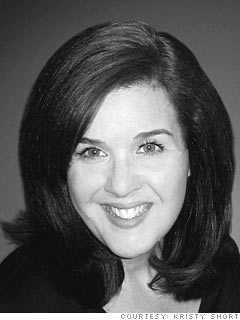Secrets of extreme savers
You can put away a lot more than the average American without living a deprived life.

Savings Rate: 30%
Home: Ypsilanti, Mich.
Occupation: Owner of public relations firm
Kristy Short always considered herself a good saver, regularly socking away 20% of her income. But five years ago, she began keeping closer track of her spending, writing everything down in a journal. She was shocked that $250 a month was going toward lunch, so she began brown bagging it most days. An impatient shopper, she would often buy clothes without trying them on -- then the clothes would languish in her closet until she gave them away. Cost: $3,000 a year. Aware of those spending leaks, Short was able to ratchet up her savings to 30% of her take-home pay.
Short still tracks her discretionary spending and stays on top of her financial goals. By doubling up on her mortgage payments, she expects to pay her loan off 11 years early. She maxes out her retirement savings and contributes regularly to her niece and nephew's college funds. Two years ago her financial stability gave her the confidence to leave her corporate job to launch a public relations firm specializing in tax and financial accounting. "When you leave the comfort of corporate life, you have to be a lot smarter about what you do with your money," says Short.
NEXT: Live on one salary while bringing in two
Last updated July 19 2010: 9:04 AM ET

